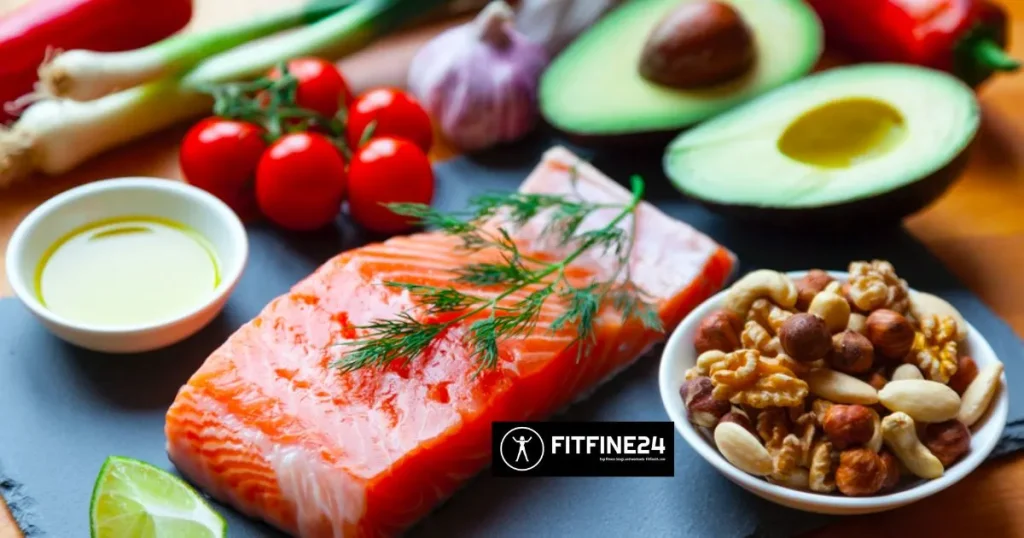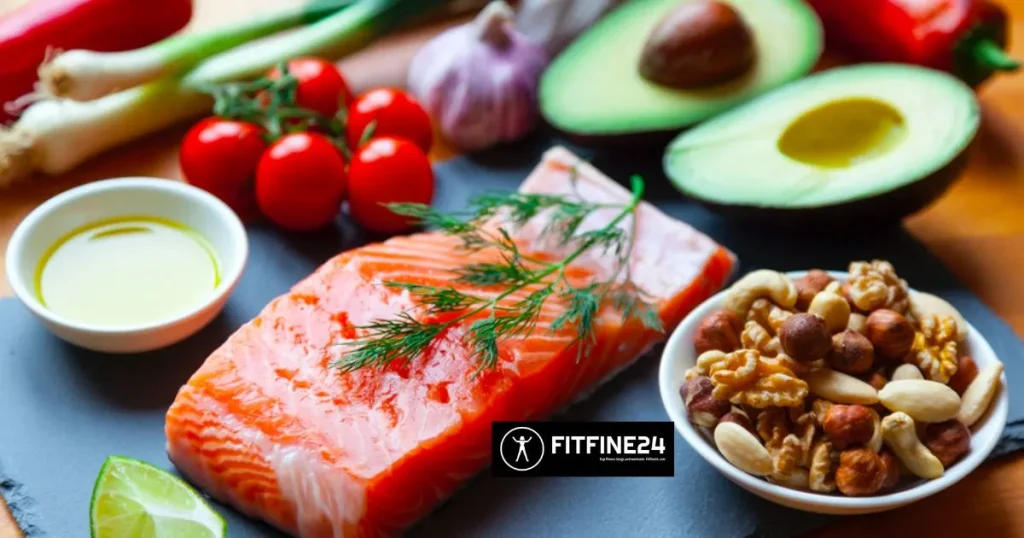Published on FitFine24
One of the top contenders in health and wellness for optimal brain health—to help reduce risks associated with cognitive decline — is the MIND diet. A hybrid between the Mediterranean and DASH plan, the MIND diet focuses on foods that can help your brain — plus, it may slow cognitive decline and Alzheimer’s risk. So, in this article, we will delve into: What is the MIND diet? How it works Why is it a fad in health trends?

What is the MIND Diet?
1-MIND* 1-MIND stands for Mediterranean-Dietary Approach to Stop Hypertension Intervention for Neurodegenerative Delay. The MIND diet was developed by nutritional epidemiologist Martha Clare Morris and her team at Rush University Medical Center. A hybrid of the Mediterranean and DASH (Dietary Approaches to Stop Hypertension) diets, the MIND diet targets foods clinically proven to support brain health in both recent studies on cognitive decline as well as age-related dementia.
The MIND Diet Essentials
The MIND diet focuses on 10 food groups that are healthy for your brain and five different types of unhealthy foods — and you should consume either in moderation. Here’s a closer look:
Add food: Brain-friendly foods.
Leafy Green Vegetables
Leafy greens like spinach, kale, and collards are rich in brain-healthy nutrients like vitamin K, lutein, folate, and beta-carotene. Eating this vegetable in diet 6 days a week

Other Vegetables
Brightly-hued veggies like bell peppers and carrots are not only great for your cells, but they also support brain health due to a healthy nutrient profile.
Nuts
Nuts — particularly almonds, walnuts, and hazelnuts are good for brain health snacks with healthy fats and vitamin E, include them at least a few days per week.
Berries
Blueberries and strawberries as well are common examples of antioxidant-rich berries that have been associated with brain health. Consume berries at least 2 times per week.
Whole Grains
Common examples of good slow-digesting food options include whole grains (oats, brown rice, bulgur wheat), which work to maintain even energy levels; and also healthier oils containing more omega-3 fatty acids. The MIND diet recommends three servings per day.
Fish
Fatty Fish Salmon, mackerel, and sardines are all rich in Omega-3s and fall under the category of fatty fish that helps improve brain functions. Have fish at least once a week.
Poultry
High in essential amino acids and B vitamins, chicken—along with that other white animal protein, turkey—is a traditional base for most dog foods. Eat poultry at least two times a week.
Beans
Beans are brain foods because they are the best sources of protein as well as fiber. Consume these four times weekly with your meals.
Olive Oil
Olive oil is another major component of the Mediterranean diet, and olive oil is high in monounsaturated fats that defend brain cells from oxidative stress.

Wine
Red wine is generally considered good for the brain because of its high level of antioxidants, provided it is taken in moderation. Perhaps just one glass a day.
Foods to Limit:
Red Meat
Red meat causes the brain to have higher oxidative stress, which leads to inflammation in the brain, so it should be eaten no more than four times per week.
Butter and Margarine
Only consume a maximum of 1 tablespoon (per day) of butter or margarine to steer clear of the unhealthy saturated fats that hurt the brain.
Cheese
Now, if you want to optimize your results while following the MIND diet, you will not have more than a serving of cheese per week. (7)
Pastries and Sweets
The first type should be within a bare minimal range, and the other causes brain damage.
Fried and Fast Foods
They are also high in trans fats, which could promote brain-altering inflammation. And try and stick to less than once a week.
Why the MIND Diet is Trending
Proven Brain Health Benefits
Scientifically backed, the MIND Diet is on its way to popularity. Research has even shown that if you follow the MIND diet to a T, people are cutting their Alzheimer’s risk in half — and 35 percent of the risk reduction might just be due to moderate adherence! This says it may be a good option for those who are worried about their brains when they retire.
Easy to Follow
Happily for you and me, the MIND diet is not as challenging to format into a day as many other diets that are highly restrictive. It is free of calorie counting and also won’t eliminate big food groups, which makes it sustainable long-term. The focus could be on adding in more healthy brain foods, and not necessarily severely restricting your diet.
A Holistic Approach to Health
It is heart-healthy (so that lines up with the other diet), and helps lower blood pressure and weight management. This is great for people who want not only to improve their health but also their brain simultaneously.
This is being Kept a secret (Celebrity Endorsement & the Media)
Since brain wellness and aging are being pathologized as “only a phase”, the MIND diet is promoted by more celebrities, polls, etc. As a result, it is now also connected to the exercise of stopping cognitive decline, a condition which has been an ongoing worry in both healthcare and in personal trainer.

What Is MIND? The Health Benefits of the MIND Diet
Slows Cognitive Decline
Through a unique blend of antioxidants, heart-healthy fats, and antioxidant compounds, the MIND diet has been proven to reduce age-associated declines in cognitive function.
Reduces Alzheimer’s Risk
The MIND diet reduces the riskof developing Alzheimer’s by incorporating brain-protective, and anti-inflammatory foods.
Promotes Heart Health
The Mediterranean-DASH diet Intervention for Neurodegenerative Delay (MIND) diet is a hybrid of the Mediterranean and DASH diets that also reduce high blood pressure and LDL cholesterol.
Supports Healthy Aging
The MIND diet is important to understand because this diet provides necessary nutrients for more than just our generations of health.
MIND Diet — Where to Start
Greens: Begin to add more green leafy veggies to your meals each day.
Swap fats: Replace butter or margarine as your primary cooking fat for olive oil.

There are 5 super brainy snacks we endorse: nuts Grant RodiekMedium.nativeElement….
Stay away from processed foods: cut out desserts, fried food items, and industrialized fast foods.
Conclusion
The MIND diet is not just a trend; it is the approach to brain function with the most research behind it! The MIND Diet, however, is a researched diet that is not only scientifically grounded in strategy for decreasing the bad stuff and increasing more healthy brain nutrients, but it will also provide professional recommendations for body/brain improvement as we age.


